Marine Resources and Energy
Staff

- Associate Professor :
Kazuo Amakasu
Specializations :
Marine acoustics, Fisheries acoustics
- My research interest is acoustic sensing technology for estimating abundance, species, and sizes of fish and zooplankton.
- Development of acoustic survey method for sakura shrimp in Suruga Bay
- Development of acoustic survey method for Japanese anchovy in Tokyo Bay
-
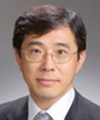
- Professor:
Tsuyoshi Ikeya
Specializations :
Offshore and coastal structures, Offshore wind turbine structures, Tsunami wave forces, Anti-scouring work
-
- Tsunami disaster prevention/reduction considering the interaction between tsunami and offshore, coastal and inland structures
- Scour prevention work in consideration of the environment influence reduction
- Real time measurement and prediction of meteorological and oceanographic conditions and ocean-wave control work
-
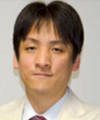
- Professor:
Tetsuya Ida
Specializations :
Electronics, Electronic control engineering, Electronic device engineering, Superconductivity engineering, Applied Physics Engineering
- In order to promote the use of ocean energy resources, I'm studying
the superconducting / electric and electronic devices and system applications.
Research target ranges from design prototyping of device and system
to experiment using them.
- Pulsed magnetization technology for high temperature superconducting materials
- Development of superconducting synchronous ship propulsion system
- Development of superconducting tidal stream generator
- Magnetic field measurement technology at cryogenic temperature
- Technology about devices / materials / structure for cryogenic temperature
- Pulse power control technology, etc
-
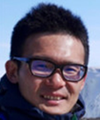
- Associate Professor :
Daisuke Inazu
Specializations :
Marine geophysics, Coastal engineering
- My research experiences have been mainly based on numerical physical simulation of the ocean. Oceans sometimes pose threats as storm surges and tsunamis to coastal communities. Research focus will be primarily on understanding, forecast, and evaluation of such marine hazards, and then on effective utilization of coastal seas. Research findings will be hopefully useful in human society as well as progress in fundamental science.
- Hydrodynamical ocean modeling of tsunamis, tides, and storm surges
- Utilizing them to enhance tsunami forecast, coastal engineering, marine geodesy, etc
-

- Professor:
Mamoru Inamoto
Specializations :
-
-
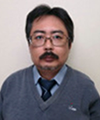
- Professor:
Kimihiko Ueno
Specializations :
Mathematical and physical fisheries Science, Industrial and applied mathematics, Nonlinear dynamical system, Complex system, Computational fluid dynamics
- Study on quasi-chaotic behaviors of narrow-band response of a non-deterministic resonant system, Prediction of irregular fluctuations by a deterministic method, based on the theory of nonlinear dynamical systems,Parameter estimation of nonlinear equation of motion.
Computational fluid dynamics
-

- Assistant Professor :Lianhui Wu
Specializations :
Coastal Engineering, Sediment Transport, Satellite Remote Sensing,Urban Flooding
-
- Sediment transport and beach deformation
- Coastal area monitoring using satellite remote sensing
- Urban flooding prediction and risk management
-
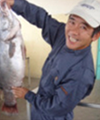
- Associate Professor :
Keiichi Uchida
Specializations :
Marine measurement, Underwater acoustic tracking system / GIS / Conger eel / Marine litter
- The origin of my research was to measure the position on the ocean.
Currently, we are conducting research on behavior of marine organism using underwater positioning technology at sea and visualization of marine resources using GIS.
-
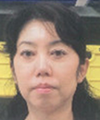
- Associate Professor :
Makiko Enoki
Specializations :
Polymer Chemistry
-
- Biomass Conversion
- BUtilization of Marine Waste
- BDegradation Mechanism of Polymer by Microorganisms
- BEnvironmental Business
-
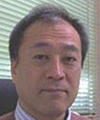
- Professor:
Akio Okayasu
Specializations :
Coastal Engineering / Shallow Water Waves / Coastal Morphology / Coastal Disaster Prevention
-
- Research and numerical simulation on waves and currents in shallow water regions
- Sediment movement in coastal areas and beach topography change
- Coastal disaster (especially tsunamis and storm surges) prevention and evaluation of mitigation methods
Originally I was studying waves in coastal areas, especially how they behave after breaking and make the beach topography changed over time. Recently, I am interested in coastal disasters such as the tsunamis and how to reduce the damages by them, and what kind of things should be considered as comprehensive measures including people's awareness and city planning.
Including these socio-scientific factors, the science is based on your own observations and studies.
I would be very happy if you find something new through these experiences.
-
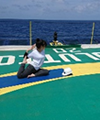
- Assistant Professor :
Satoko Owari
Specializations :
Marine geochemistry / Marine geology
-
- Interstitial water in marine sediment
- Radioactive iodine
- Methane
- Subduction fluid migration system
The ocean is the largest reservoir of materials on Earth. In particular, the dissolved components of interstitial water in marine sediments contain a variety of dissolved materials, and their distribution is heterogeneous depending on chemical species, ocean area, and depth. We aim to clarify the factors controlling the distribution of dissolved materials by integrating knowledge from earth science (geology) and chemistry (which is called geochemistry).
-
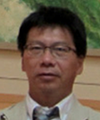
- Professor:
Hisami Kuwahara
Specializations :
Barren ground, Bivalves, Seaweed beds, Tidal flat, Artificial fishing ground, Structural measures, Non-structural measures, Adaptive management
-
- Measures against browsing damage by herbivorous fish
- Construction of artificial fishing ground for bivalves
- Recovery of fishing ground function using structural and non-structural measures
- Improvement of fishing ground function considering the life history of fishery organisms
A lot of fishery resources in Japan almost have no sign of restoration of their resource though many recovery measures have carried out. Seaweed beds and tidal flat in coastal region are important for many kinds of fishery organism, however, currently these area are reduce and their functions decrease. We studies to clarify the environment suitable for marine organisms and to effectively develop their environment.
-
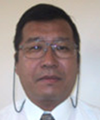
- Professor:
Hisaharu Sakai
Specializations :
Marine engine, marine electricity, fisheries machine, saving energy
-
- Construction of the early detection technique for the engine trouble.
- Construction of the saving energy system in vessels.
-
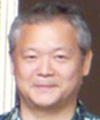
- Professor :
Sawada Koichi
Specializations :
Acoustic survey, Multi-frequency Acoustics, Quantitative echo sounder, Target strength
-
- Abundance estimation of fish and zooplankton with acoustic and complementary technologies
- Development of acoustic and optical instruments for measuring marine organisms such as fish and zooplankton
We are developing methods and instruments to estimate precise abundance of marine organisms with acoustic and other complementary technologies.
-
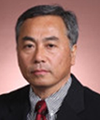
- Professor:
Kiminori Shitashima
Specializations :
Marine Geochemistry / Underwater sensor engineering
-
Development of chemical sensors, which can be used for a entire water column from the surface of the ocean to deep sea, to investigate chemical characteristics near hydrothermal deposits and to uncover the chemical material cycles. These sensors are mounted on the variety of ocean observing platforms including underwater robots. We utilize the ocean engineering technology to develop novel sensing technologies and to bring them under the sea to measure in-situ chemical processes.
-
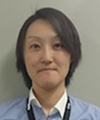
- Associate Professor :
Yuko Takeyama
Specializations :
Marine Meteorology / Ocean Remote Sensing / Offshore Wind Power
-
- Offshore wind resource assessment by satellite remote sensing and numerical meteorological models.
- Study on wind turbulence intensity and atmospheric stability.
- Development of the geophysical model function for synthertic aperture radars.
-
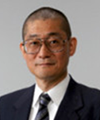
- Professor:
Kazuo Tani
Specializations :
Geotechnical engineering / Rock engineering / Soil engineering / Resource development / Mining engineering / Prevention of geo-disaster / Engineering geology / Geo-environmental engineering
-
- Mining of marine mineral resources, Development of gas hydrates
- Geotechnical site characterization
- Evaluation of deformation and stability of geotechnical structures
- Disaster prevention technology for geotechnical structures
- Geo-environmental technology
-
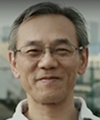
- Professor:
Tetsuro Tsuru
Specializations :
Marine Resource Exploration
-
Marine Resource Exploration, Oil and Natural Gas Exploration、Reflection Seismic Survey
-
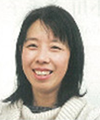
- Associate Professor :
Kayoko Tsuruga
Specializations :
Deep Sea Mining / Underground
-
Development of the new technologies to investigate deep sea undergroud resources and structures.
-
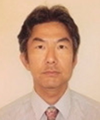
- Professor:
Masayoshi Toda
Specializations :
System control, Mobust control, Motion control of robots, Motion control of underwater vehicle
-
Robust control and its applications to ocean mechanical systems, e.g,
motion control of mechanical systems under an oscillatory environment due to wave, like an offshore crane;
motion control of towed underwater vehicles and AUVs with manipulators.
-
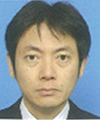
- Associate Professor :
Kazuo Nakahigashi
Specializations :
Marine Seismology , Ocean Floor Geoscience
-
- Earth structure
- Seismic activity
- Seafloor crustal deformation
-
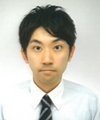
- Associate Professor :
Shun Nomura
Specializations :
Subsea ground development, Subsea ground environment, Geoengineering, Soil mechanics, Mixture theory, Heat and solution transfer
-
- Development of mining and utilizing methods for undersea resources and renwable energy
- Construction method and design guidelines for subsea infrastructure structure
- Evaluation of deterioration of seafloor infrastructure materials
- Deformation-stability analysis of marine ground
- Dynamics of submarine turidity current
-
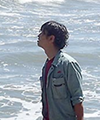
- Assistant Professor :
Seishiro Furuyama
Specializations :
Marine Geology, Seismic reflection survey, Carbonate sedimentology, Carbonate Geochemistry
-
- Marine geology with seismic reflection survey
- Animal evolution and paleooceanic background in Precambrian
-

- Assistant Professor :
Yuka Mishima
Specializations :
Bioacoustics, Ethology
-
My main research interest is sound communication of toothed whales (dolphins).
Function of vocal exchange, inter-individual and mother-calf communication, vocal development, measurement of directionality, automatic extraction of communication sounds, and development of a broadband underwater speaker.
I will study about impacts of anthropogenic noise on cetaceans.
-
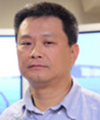
- Professor:
Yoshinori Miyamoto
Specializations :
Bio-telemetry, Bio-logging, Underwater sound, GPS, RFID (IC tag), Behavior / Ecology analysis, Positioning accuracy, Magnetic compass
-
I am promoting research on marine life and environment from the aspect of engineering. "We analyze our own measured data by yourself", we go to the field (ocean), analyze the data, and aim to find further problems. I am convinced that they have learned that they need approaches to problems, their ability to solve (design power) and importance of cooperation. Also, I am keeping in mind the research that I can feed back to the industry as much as possible, not doing research for research. For that reason, I am thinking about the wide field of view, the use of new devices for marine / fishery production, and system construction.
-


























